Sentence Structure Teaching Resources
Teach students the elements of sentence structure this school year with printable worksheets, sentence-building activities, sorting games and more primary school teaching resources designed to help extend your students' understanding of how to write clear and concise sentences that follow the rules of English grammar.
This extensive collection of teaching resources has been created by teachers for teachers like you. Aligned to the National curriculum, the English collection includes editable worksheets and teaching presentations and more to save primary teachers time on lesson planning.
Created by expert teachers, each resource in this sentence collection has been carefully reviewed and curated by our team. That means it's ready to use in the classroom! You'll even find editable resources, plus differentiated options.
New to teaching about sentence structure, or just looking for fresh ways to engage your students? Read on for a primer from our teaching team!
English Sentence Structure Explained
From subjects to predicates, objects to clauses, the English language is packed with rules specific to sentence structure that students need to learn on the way to becoming proficient writers.
Ready to break down how to build a sentence in English and look at some examples? Let's go!
Subject
The subject of a sentence is the noun or pronoun that performs the action or is described in the sentence.
For example, in the sentence 'Jaquan did his homework,' Jaquan is the subject.
Predicate
The predicate of a sentence expresses the action or state of being in a sentence.
Let's go back to the sentence 'Jaquan did his homework.' In this case, did is the predicate.
Object
The object of a sentence is a noun or pronoun that receives the action of the verb.
For example, 'homework' would be the object in 'Jaquan did his homework.'
Complement
The complement of a sentence is a word or phrase that completes the meaning of a sentence.
The complement can be a direct object, indirect object or subject complement.
For example: 'a doctor' in 'She became a doctor.'
Modifier
A modifier in a sentence provides additional information about a word or phrase in the sentence. It can be an adjective or an adverb. Example: 'kind' in 'She was a kind teacher.'
What Are Clauses?
Clauses are groups of words containing a subject and a verb. They're important to understand when learning sentence structure. After all, one kind of clause is a sentence!
There are two main types of clauses:
- Independent Clause — An independent clause can stand alone as a complete sentence because it expresses a complete thought. For example: 'I did all of my homework.'
- Dependent Clause — A dependent clause cannot stand alone as a sentence because it does not express a complete thought. It relies on an independent clause to make sense. Example: 'When I went to the store,' (Dependent clause) 'I bought an apple.' (Independent clause). Dependent clauses can be paired with independent clauses to build sentences.
- Plus Plan
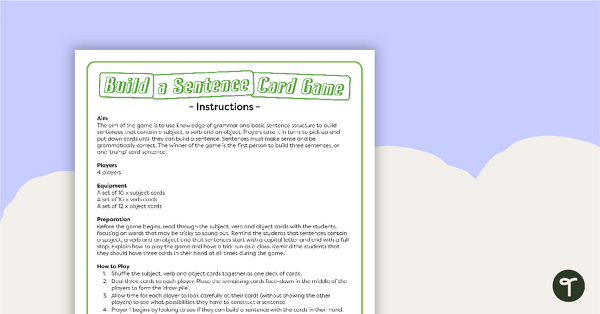
Build a Sentence Card Game
A fun and engaging card game that focuses on building simple sentences that include a subject, verb and object.
- Plus Plan
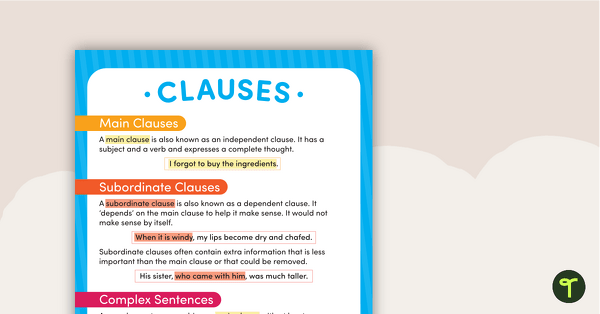
Main Clauses and Subordinate Clauses Poster
A poster explaining main clauses and subordinate clauses.
- Plus Plan
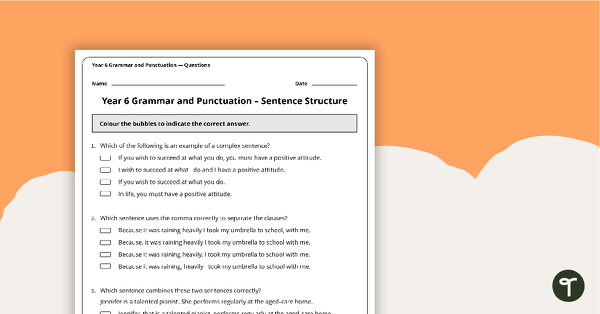
Grammar and Punctuation Assessment Tool - Year 6
A set of 5 grammar and punctuation assessment tools suited to Year 6 students.
- Plus Plan
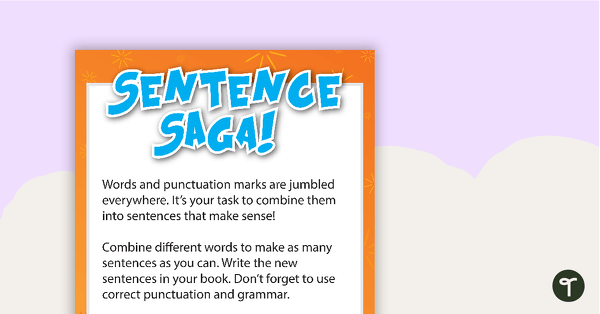
Sentence Saga Literacy Activity (Silly Sentences)
Words and punctuation marks are jumbled everywhere. It’s your task to combine them into sentences that make sense!
- Free Plan
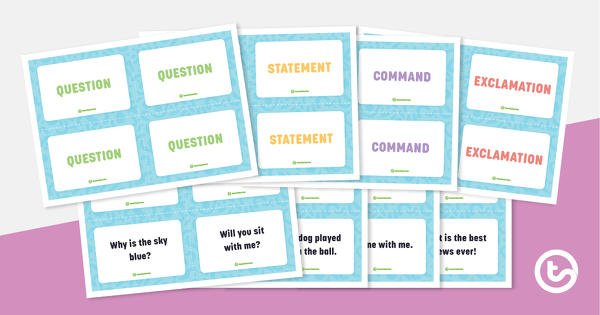
Statement, Question, Command, Explanation – Match Up Cards
A set of 32 match up cards to use when teaching younger students about the four types of sentences.
- Plus Plan
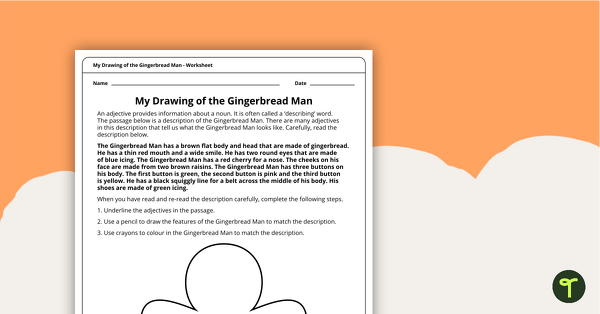
My Drawing of the Gingerbread Man Worksheet
An engaging worksheet in the theme of the Gingerbread Man that explores the use of adjectives through drawing.
- Plus Plan
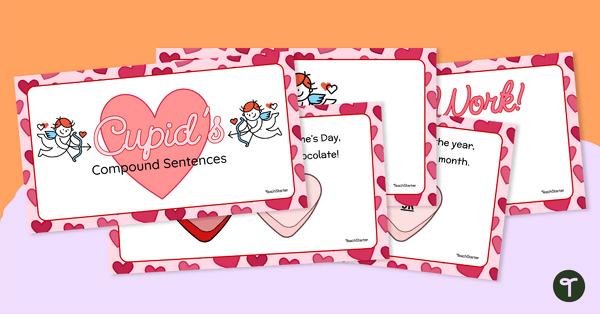
Cupid's Compound Sentences Interactive Activity
Build some sweet sentence writing skills using a fun Valentine’s Day Compound Sentence interactive activity.
- Plus Plan
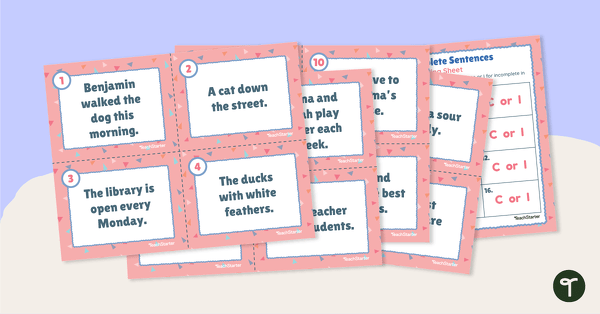
Complete and Incomplete Sentence Task Cards
These task cards are best used as independent practice or formative assessment assignments during sentence structure lessons.
- Plus Plan
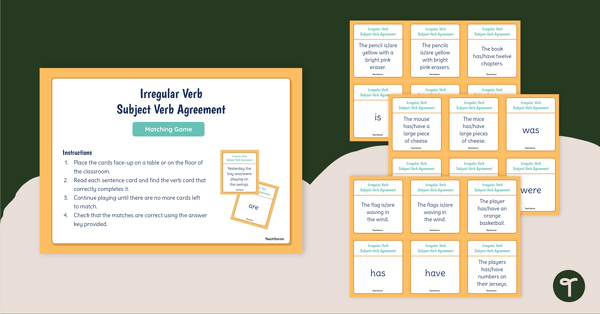
Subject-Verb Agreement Concentration and Go Fish Game
Improve students' sentence structure with a card game focusing on correct subject-verb agreement.
- Plus Plan
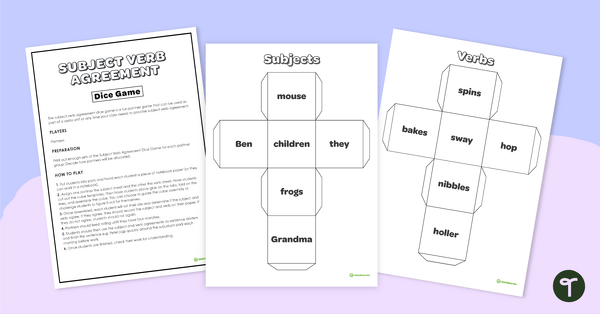
Subject Verb Agreement Dice Game
A dice game for pairs of students to practise subject verb agreement and sentence writing.
- Plus Plan
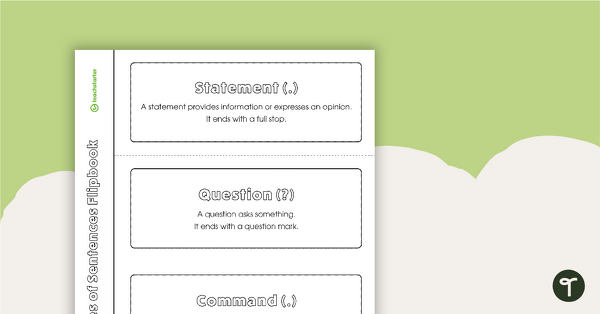
Statement, Question, Command, Exclamation Flipbook
A template for students to use when learning about the four types of sentences.
- Plus Plan
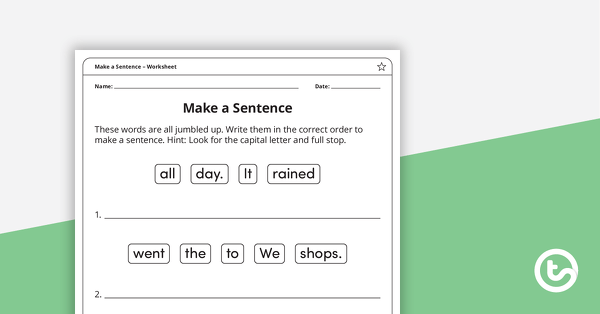
Make a Sentence – Worksheets
A set of worksheets where students un-jumble words to create a sentence.
- Plus Plan
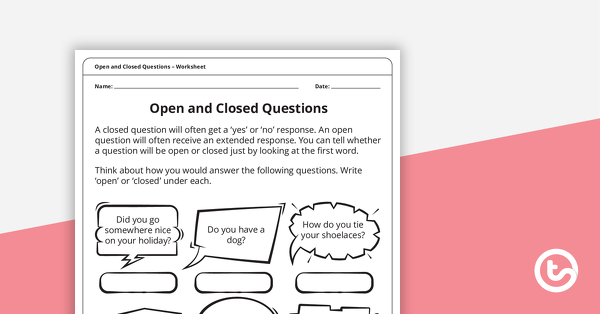
Open and Closed Questions – Worksheet
A worksheet for students to demonstrate their knowledge of open and closed questions.
- Plus Plan
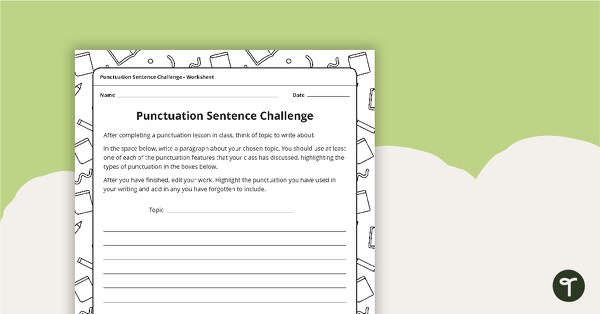
Punctuation Sentence Challenge Worksheet
A teaching resource to help consolidate the students’ knowledge of punctuation.
- Plus Plan
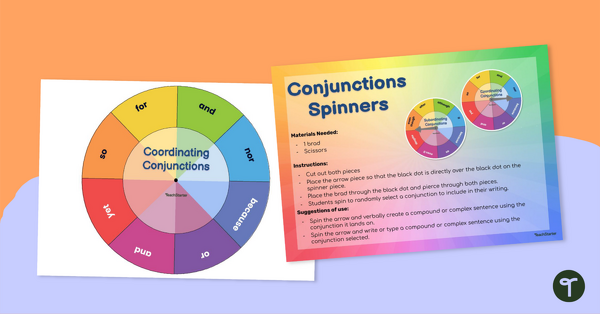
Conjunctions Spinners (Coordinating Conjunctions, Subordinating Conjunctions, Correlative Conjunctions)
Bring some fun to your grammar lessons with these colourful conjunctions spinners! Students spin tp reveal a conjunction to use in their writing or oral language.
- Plus Plan
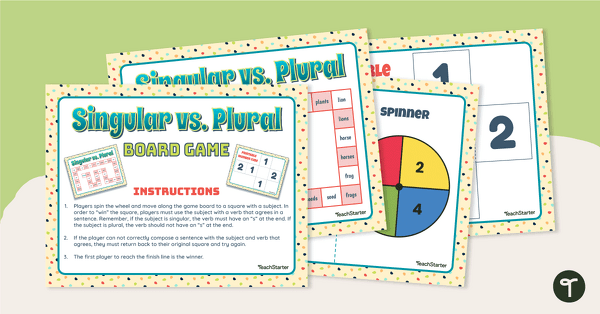
Singular/Plural Subject–Verb Agreement Board Game
Improve sentence structure and grammar skills with a board game that focuses on singular and plural subject-verb agreement.
- Plus Plan
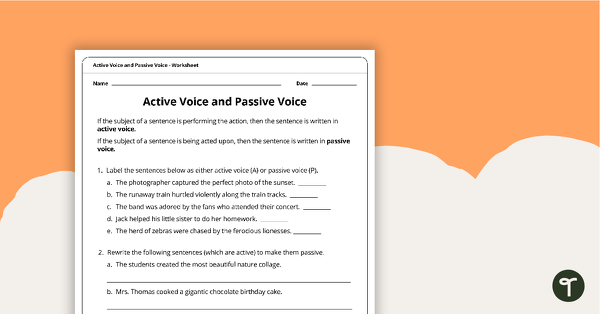
Active Voice and Passive Voice Worksheet
A worksheet for students to use when learning about active voice and passive voice.
- Plus Plan
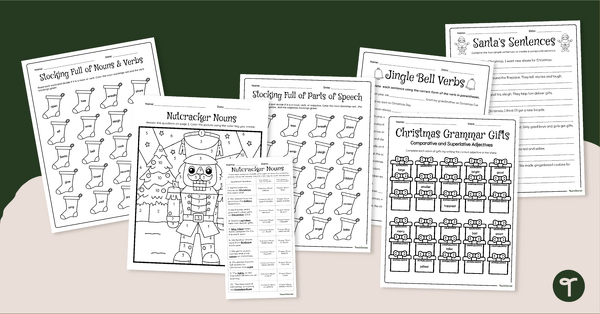
Year 3 and Year 4 English Worksheets - Christmas Printables
Add some Christmas spirit to your December grammar lessons with a printable pack of Christmas-themed Year 3 and Year 4 English worksheets.
- Plus Plan
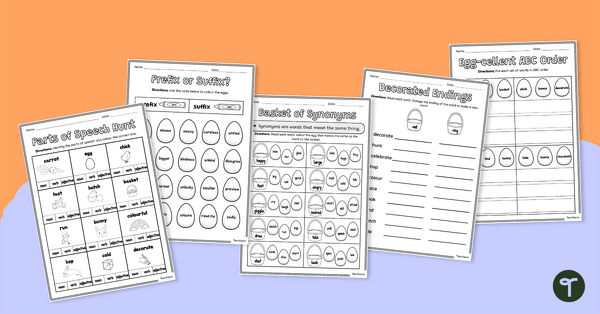
Easter Worksheets - Grammar Practise
Practise skills learnt in literacy with this Easter-themed grammar activity pack.
- Plus Plan
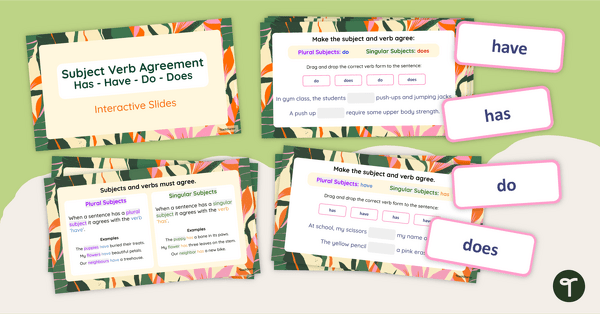
Has/Have, Do/Does Subject Verb Agreement - Interactive Activity
Embed subject-verb agreement practice into digital learning with this interactive activity.
- Plus Plan
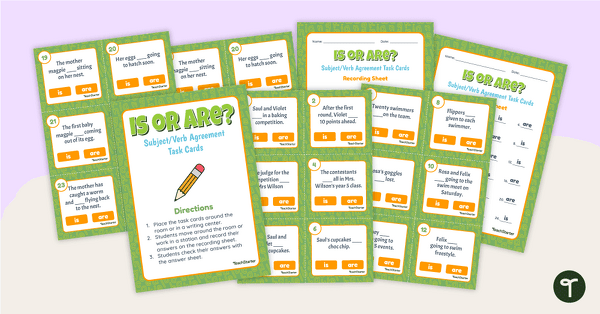
Is/Are Subject Verb Agreement Task Cards
Practice using 'is' and 'are' correctly using a set of subject-verb agreement task cards.
- Plus Plan
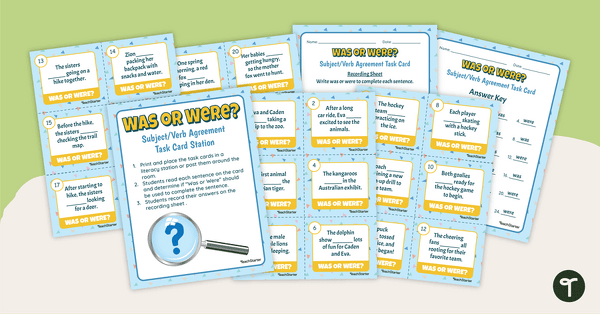
Was/Were Subject Verb Agreement Task Cards
Practise using ‘was’ and ‘were’ correctly using a set of subject-verb agreement task cards.
- Plus Plan
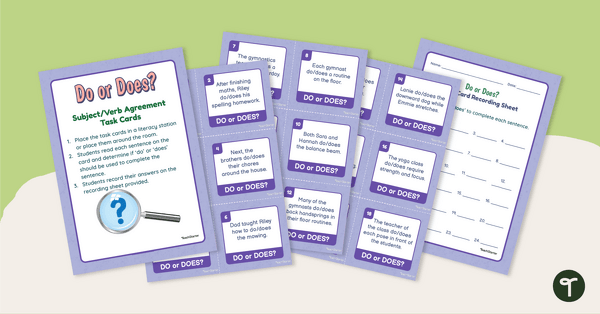
Do/Does Subject Verb Agreement Task Cards
Practise using ‘do’ and ‘does’ correctly using a set of subject-verb agreement task cards.
- Plus Plan
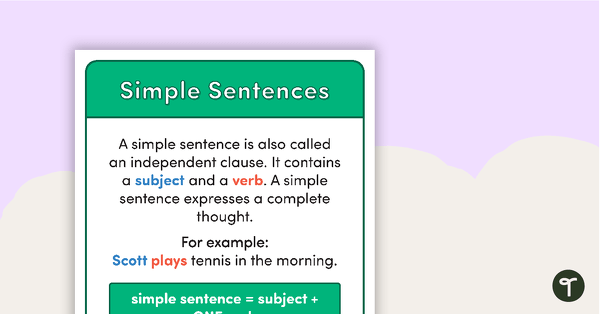
Types of Sentences Posters - Large Text
A set of 7 posters outlining the structure of various types of sentences.
- Plus Plan
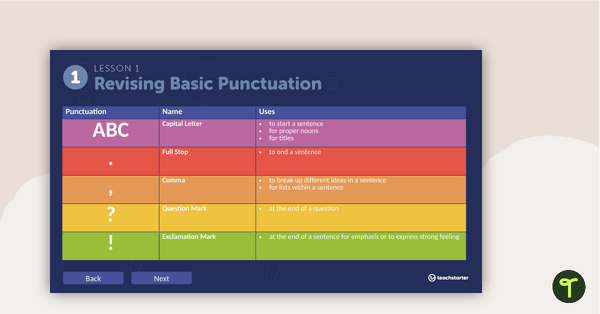
Paragraph Study Punctuation Interactive PowerPoint
Interactive PowerPoint presentation allowing teachers and students to learn and revise punctuation by highlighting paragraphs.
- Plus Plan
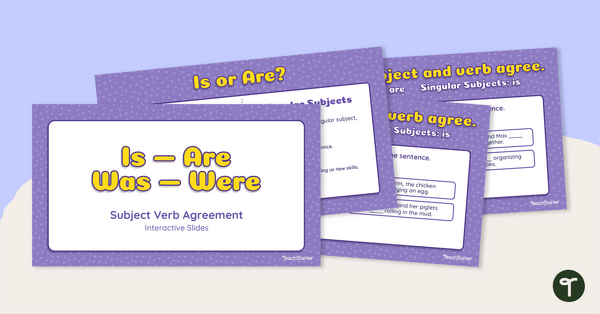
Is/Are, Was/Were Subject Verb Agreement - Interactive Activity
Embed subject-verb agreement practice into digital learning with this interactive activity.
- Plus Plan
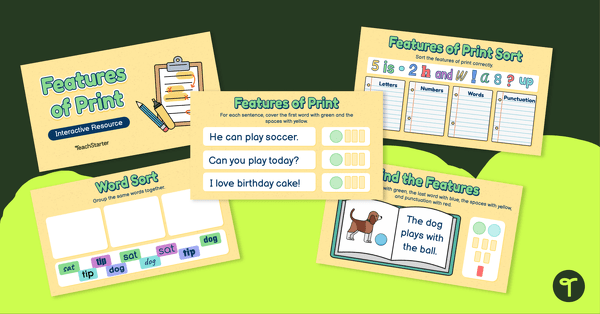
Google Slides Interactive - Features of Print
Use a Google Slides interactive activity to aid beginning readers in recognising print features and concepts of print.
- Plus Plan
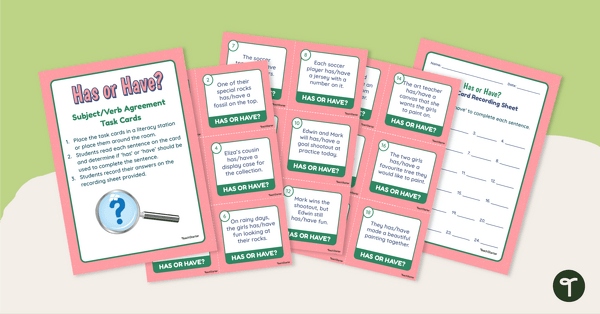
Has/Have Subject Verb Agreement Task Cards
Practise using ‘has’ and ‘have’ correctly with a set of subject-verb agreement task cards.
- Plus Plan
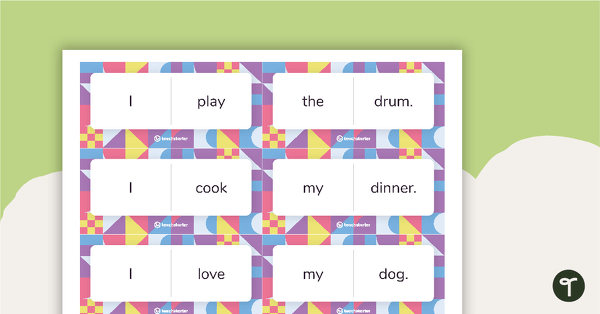
Simple Sentence Dominoes (Version 2)
A set of 30 dominoes to assist younger students with building simple sentences.
- Plus Plan
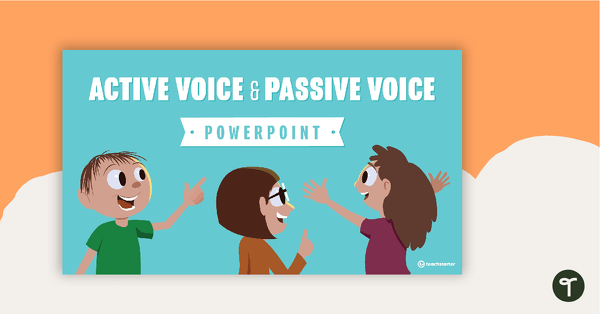
Active Voice and Passive Voice PowerPoint
A 13 slide editable PowerPoint template to use when teaching your students about active voice and passive voice.
- Free Plan
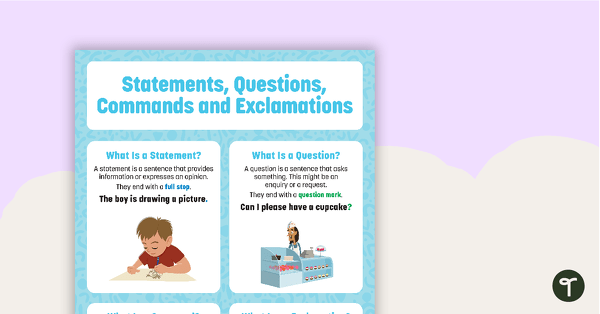
Statement, Question, Command, Exclamation – Poster
An educational poster that introduces the attributes of statements, questions, commands and exclamations.
- Plus Plan
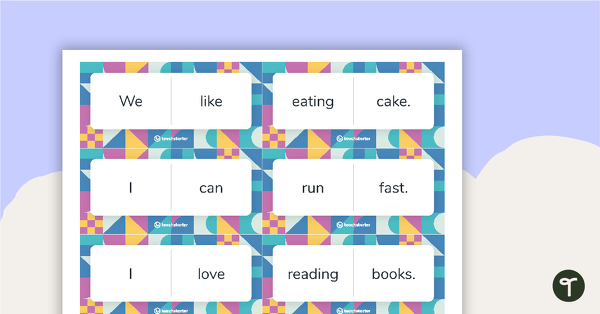
Simple Sentence Dominoes (Version 3)
A set of 30 dominoes to assist younger students with building simple sentences.